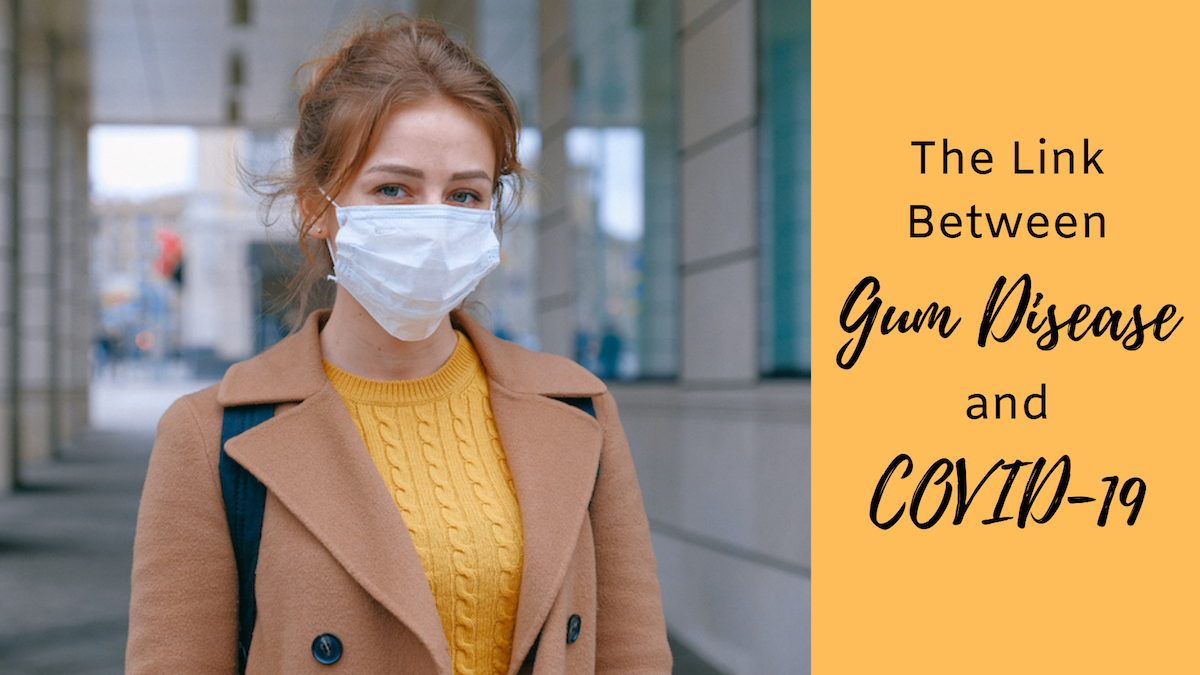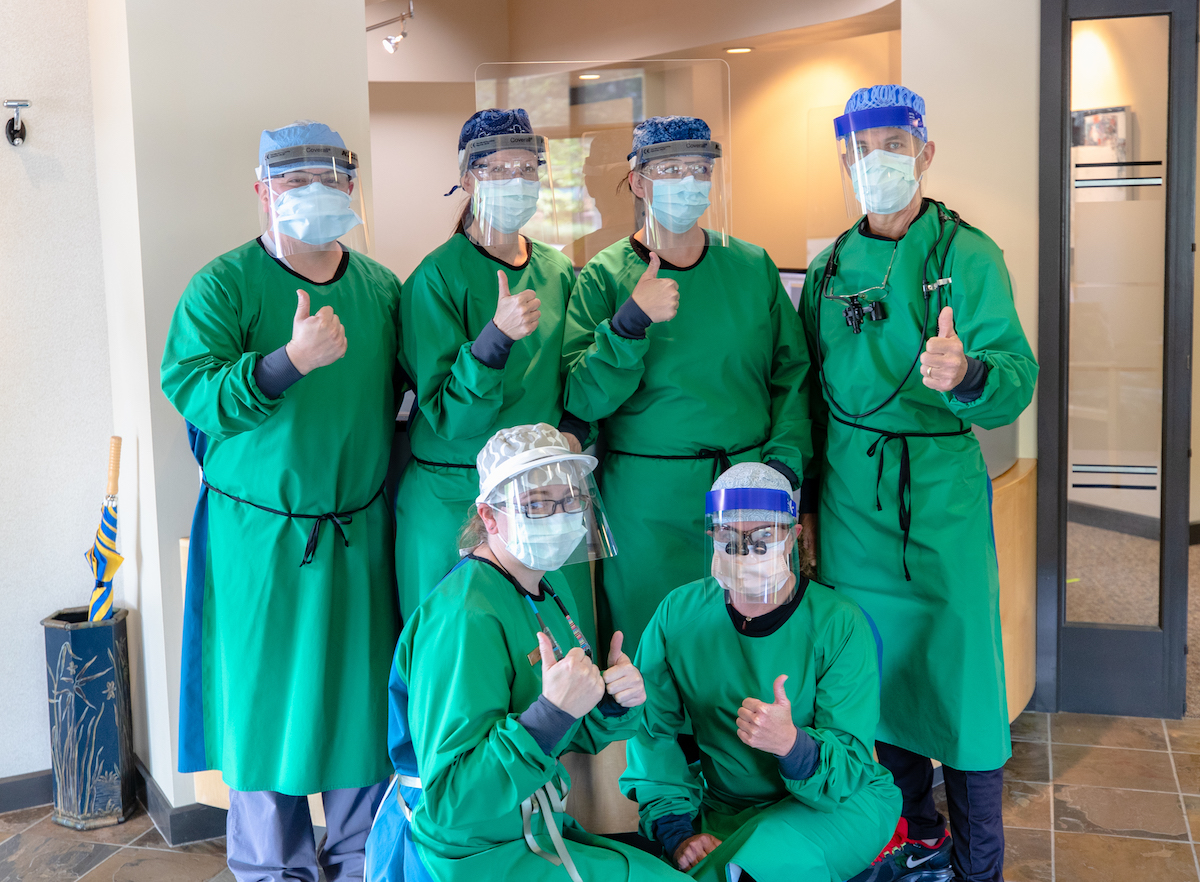
This year and the global pandemic have caused a lot of change to our usual routines.
One big routine that might have changed due to the onset of COVID-19? Your regular visits to the dentist’s office.
But as recent studies show a connection between gum disease and COVID-19, it’s more important than ever to maintain your regular dental appointments and exams.
In this post, we’ll review the connection between gum disease and COVID-19, common symptoms of gum disease, and tips for prevention. Let’s get started.
What is gum disease?
Gum disease, also known as periodontitis, is inflammation and infection of the gums. At a minimum, it damages the soft tissue of the gums and causes bleeding and irritation. A less severe form of gum disease is called gingivitis. If caught early enough, it’s usually reversible. At its worst, gum disease can damage the jaw bone or lead to tooth loss.
Gum disease is caused when a sticky substance called plaque forms on and in between the teeth. If not removed by brushing and flossing, plaque hardens into tartar, which is filled with bacteria and much more difficult to remove.
The bacteria found in plaque and tartar can infect the gums when it slips below the gum line and isn’t removed.
A few of the common signs and symptoms of gum disease include:
- Gums that bleed easily
- Gums that are tender, swollen, or puffy
- Gums that are red or purple in color
- Gums that bleed after brushing or flossing
- Bad breath, even after brushing
- Pain when you chew
- Gums that recede from the teeth
- Loose teeth
The link between gum disease and COVID-19
Periodontal disease has been linked to many other diseases and conditions, including heart disease, diabetes, Alzheimer’s, and respiratory disorders. This is thought to be because the bacteria in your mouth can escape into your bloodstream, causing inflammation throughout the body.
More recently, findings have indicated that patients who are hospitalized with COVID-19 are more likely to encounter severe symptoms, including respiratory failure, if they also have gum disease.
This is thought to be for a few reasons:
- Periodontal health is connected to systemic health. Periodontal disease affects your immune system, as your body tries to fight off the bad bacteria in your mouth and any that enter the bloodstream.
- Periodontal disease can lead to a number of conditions that put you at greater risk of contracting COVID-19, including respiratory illness, asthma, and diabetes.
- Gum disease can lead to an overproduction of the protein IL-6, an inflammatory mediator often associated with gum disease. This overproduction can lead to overflow into circulation, causing systemic inflammation. Studies have tied high IL-6 levels with severe COVID-19.
While these topics are still being studied, it’s important to incorporate regular brushing and flossing habits into your routine to help prevent gum disease.
Key prevention tips for gum disease
Studies suggest almost half of adults aged 30 years and older have gum disease. Although gum disease is very common, luckily, it is also largely preventable. Let’s review a few ways to help prevent gum disease.
Tip #1 – See your dentist for regular 6-month exams
This tip is #1 for a reason. Because gum disease is difficult to detect, your best bet to catch and treat gum disease is by seeing your dentist for your regular 6-month exams. Worried about visiting us here at Timberhill Dental during the pandemic? Read on to learn more about what we’re doing to keep you and our Corvallis community safe.
Tip #2 – Practice a good oral hygiene routine at home
Brushing twice a day for a minimum of 2 minutes each day, paired with flossing, is the easiest way to help avoid dental problems down the road. Practicing this basic routine helps remove a large percentage of the plaque on your teeth, keeping it from hardening into tartar and slipping below the gum line.
You can also add a twice-daily mouthwash rinse into your routine to help reduce plaque.
Tip #3 – Maintain a balanced diet
A diet heavy in sugary or acid foods can promote plaque and tartar build-up on the teeth. Limit your consumption of sugary or acidic food and beverages.
Schedule your appointment at Timberhill Dental

Dr. Black says, “Come see us at Timberhill Dental so that our team can make sure that you are doing everything possible to optimize your oral health!”
Contact us online today to schedule your appointment, or give us a call at (541)754-0144. You won’t see our smiles behind our masks, but we look forward to seeing you and serving you safely!